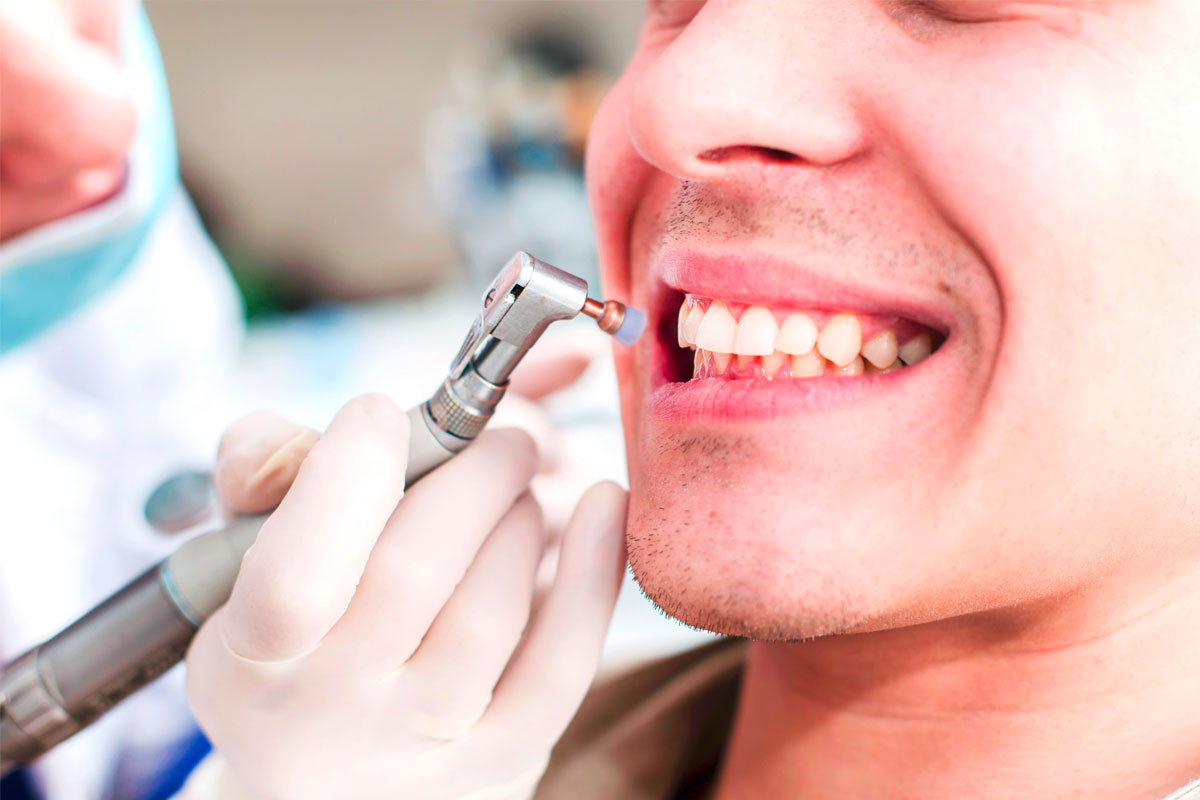A dental cleaning, referred to as a dental hygiene appointment or prophylaxis, stands as a cornerstone of optimal oral health. Beyond a mere surface polish, this routine procedure assumes a pivotal role in preventing dental issues, safeguarding the brilliance of your smile, and enhancing your overall well-being.
Benefits of Routine Dental Cleanings
Regular dental cleanings are essential for maintaining optimal oral health, yet their significance is often underestimated. Neglecting this crucial aspect of dental care can have consequences. Routine cleanings play a pivotal role in preventing gum disease, caused by plaque and tartar buildup along the gumline, which can lead to inflammation, infection, and tooth loss. Additionally, they aid in preventing tooth decay by removing plaque, reducing the need for extensive future treatments. These cleanings improve overall oral health, leading to healthier gums, fresher breath, and a lowered risk of oral infections. Moreover, they offer early detection of potential oral health issues, ensuring timely intervention and treatment. Prioritizing regular cleanings ensures the long-term vitality of your teeth and gums.
Steps Involved in a Routine Dental Cleaning
The steps in a dental cleaning typically include:
- Examination: The dental hygienist visually inspects your teeth and gums, checking for signs of decay, gum disease, or other oral issues. Dental instruments and mirrors may be used for a closer look.
- Scaling: Plaque and tartar buildup are removed from tooth surfaces and along the gumline. This can be done using handheld dental instruments or ultrasonic scalers, which use vibrations to dislodge deposits.
- Root Planing (if needed): For individuals with gum disease, root planing involves smoothing the rough surfaces of tooth roots to discourage further plaque and tartar accumulation. It requires precision and may take more time than scaling.
- Polishing: Teeth are polished using a special toothpaste and tools such as rotating brushes or rubber cups attached to handheld devices. This step makes teeth look cleaner and creates a smooth surface to deter future plaque buildup.
- Fluoride Treatment (optional): A fluoride treatment may be applied as a gel, foam, or varnish to strengthen tooth enamel and reduce cavity risk. It is typically left on the teeth for a short period before rinsing or gradual absorption.
These steps collectively remove plaque and tartar, prevent dental problems, and promote overall oral health. Regular dental cleanings are essential for maintaining the longevity and vitality of your teeth and gums.
How Often Should You Schedule a Routine Dental Cleaning?
The frequency of routine dental cleanings varies depending on factors like your oral health, history, and habits. While the general guideline is a cleaning every six months, some may need more or fewer appointments. Typically, a six-month interval helps remove plaque and tartar before they lead to issues. However, those with compromised oral health or specific conditions might benefit from cleanings every three to four months. It’s essential to consult with your dentist or dental hygienist to determine the best schedule for your needs, ensuring optimal oral health care.
How to Prepare for a Routine Dental Cleaning
Preparing for a dental cleaning involves several straightforward steps to enhance your appointment:
- Update Your Medical Information: Notify your dental office of any changes in your health, medications, or allergies since your last visit. This helps ensure personalized and safe care.
- Maintain Good Oral Hygiene: Prior to your cleaning, uphold strong oral hygiene habits. Brush your teeth thoroughly using fluoride toothpaste and a soft-bristled toothbrush in the morning and before your appointment. Remember to floss to remove debris and plaque between teeth.
- Honesty About Habits: During your cleaning, your dental hygienist will assess your oral hygiene habits and provide tailored advice. Be honest about your brushing, flossing frequency, toothbrush type, and any challenges you face to optimize your oral care routine.
- Express Concerns: If you have specific oral health concerns or questions, share them with your dental hygienist. Whether it’s tooth sensitivity, gum changes, or queries about dental procedures, open communication allows for addressing your needs and providing guidance or referrals.
- Stay Relaxed: Dental cleanings are standard procedures performed by professionals. While it’s natural to feel some anxiety beforehand, try relaxation techniques like music, deep breathing, or guided imagery to create a more comfortable experience.
By following these steps, you can ensure a successful and comfortable dental cleaning appointment and work towards maintaining optimal oral health. Your dental hygienist is there to support your journey to a healthy and vibrant smile, so don’t hesitate to ask questions or seek clarification during your cleaning.
Richmond Dental Centre Accepting New Patients
Are you looking for a local dentist in the city of Richmond? The Dental Professionals at Richmond Dental Centre welcomes walk-ins, emergencies & new patients! Give us a call at (604) 273-3368 to schedule a dental appointment.







